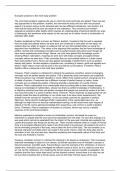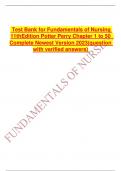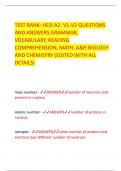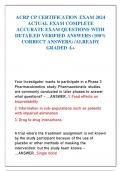Essay
Edexcel Religious Studies AS/A-Level - Unit 6 - Influences of developments in religious belief - 6.2 Points for discussion about life after death
- Institution
- PEARSON (PEARSON)
This essay covers unit 6.2 of the Edexcel Religious Studies specification - Points for discussion about life after death - in unit 6 Influences of developments in religious belief. It is used in Section C of Paper 1 (Question 4), includes a synoptic link, and can be tailored to earlier questions of...
[Show more]












